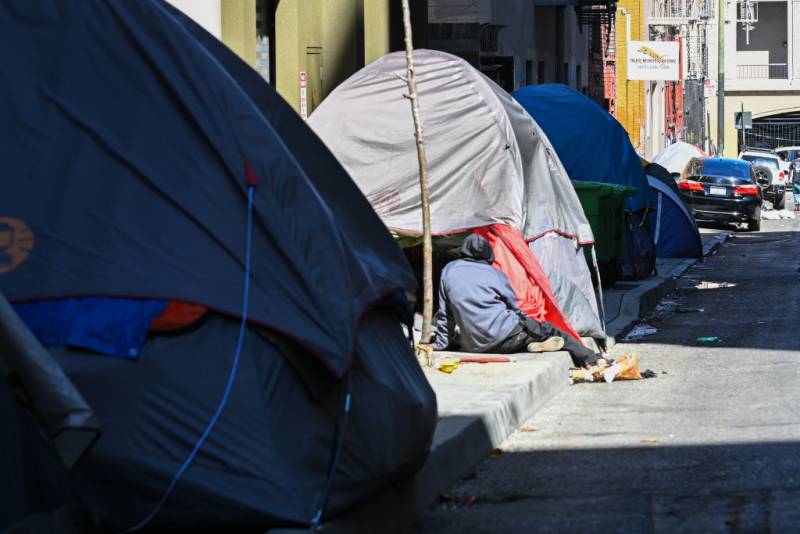A federal court this week denied San Francisco’s request to modify an order that temporarily bans the city from clearing street encampments without first offering people alternative shelter options.
Tuesday’s ruling is the latest chapter in an ongoing battle over the city’s widespread homeless encampments and what to do with the thousands of people who live in them.
The ban — or injunction — in question was issued by a federal judge late last year, several months after the nonprofit Coalition on Homelessness sued the city, alleging it was violating its own encampment clearing policies.
“It is real progress,” Zal Shroff, interim legal director for the Lawyers’ Committee for Civil Rights, said of Tuesday’s ruling by a three-judge panel of the Ninth Circuit Court of Appeals. “The law has been perfectly clear that you cannot punish someone who doesn’t have access to shelter.”
San Francisco, however, said this latest decision — which effectively kicks the most contentious decisions on the issue down the road — was actually in its favor, as it allows the city to resume some encampment sweeps and, if necessary, renew its motion in the future.
How’d we get here?
When the Coalition on Homelessness sued San Francisco last September, it argued the city was threatening to cite and arrest encampment occupants who refused to move, without first offering them adequate shelter options, in violation of its own policies.
The plaintiffs also argued the city had failed to regularly adhere to its “bag and tag” policy that directs its workers to offer people in encampments the option of labeling and storing their personal items before their camps are cleared.
“The law is very clear, and the city needs to follow its own policies,” Jennifer Friedenbach, executive director of the Coalition on Homelessness, told KQED after Tuesday’s ruling. “Everything is in place, it’s the practices on the ground that need more work.”

